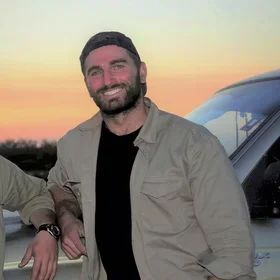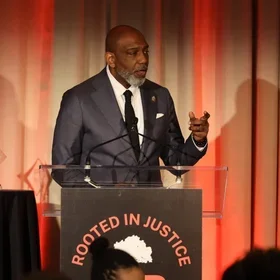No one relishes having difficult conversations. But with the right tools at your disposal, it’s possible to discuss challenging topics and still make it to the dessert course without raising your voice.
On January 26, Dr. Beth Fisher-Yoshida, program director of the Negotiation and Conflict Resolution program in the Columbia University School of Professional Studies, led a workshop dedicated to helping faculty across the Columbia campus navigate difficult conversations as part of the Dialogue Across Difference initiative, sharing practical techniques for engaging in difficult conversations both inside and outside the classroom.
The Role of Self-Awareness
Dr. Fisher-Yoshida believes that developing greater self-awareness can improve communication and lead to healthier relationships. “We all carry stories with us from different experiences,” she said. “So it’s important to understand what those different stories are and the way they shape how you think and how you are in the world today.”
The varying roles we play in life are also key to how we communicate with others about touchy subjects. “Because communication interaction is relational,” said Dr. Fisher-Yoshida, “what you say and what you do, and what you represent, could also trigger something in the other person.”
This is also true in the classroom. “If you're a professor in a classroom, and a student is challenging you in a way that’s not comfortable, you might feel that you’re losing control or that your status is being questioned, or that you may look incompetent about something or you may look defensive, because you’re not trying to talk about a particular topic,” she said.
“So as a professor in the classroom, you have multiple roles, including to create a safe learning environment. And just because one or more students want to discuss a topic, like the conflict in the Middle East, it doesn’t mean everybody else in the class wants to do that. In that case you’d have to also take care of those students. You have multiple roles within the title of professor.”
Guidelines for Navigating Difficult Topics
Dr. Fisher-Yoshida provided faculty with guidelines for what to do if they are asked to participate in a difficult conversation. If you decide to participate, she noted, it’s important to make sure you get what you need to feel emotionally safe.
Dr. Fisher-Yoshida suggested these responses during the workshop session:
- “Yes, I agree it is an important topic, and in order to discuss it at this time, I need to feel comfortable.” (This would be followed by a discussion of the guidelines that might make you or others present comfortable.)
“I agree to discuss this topic with you, and in order to do so, I would like to establish ground rules.” (This would be followed by a discussion of the ground rules for the conversation.)
“I will participate in this conversation, and I want to be able to stop if it gets too uncomfortable or overheated.” (This would be followed by a discussion of safe and respectable ways to end the conversation.)
It is also a valid choice to let someone know that you do not want to engage in a difficult conversation. In those instances, she suggested the following responses:
- “I am not prepared to participate in this conversation at this time.”
- “I do not feel this is the right time or place for this conversation.”
- “This is not a topic I wish to discuss at this time.”
The Upside to Uncomfortable Conversations
It’s also important to keep in mind that opportunities can arise from difficult conversations.
During the workshop, Dr. Fisher-Yoshida explained that understanding can be fostered when people in conversation get an opportunity to air their views. This can be accomplished most successfully, she said, when we have a strong understanding of our strengths, vulnerabilities, and triggers, which comes with the continued work of developing more self-awareness.
Before wrapping up, Dr. Fisher-Yoshida reminded faculty that these conversations aren’t contests or debates or the final word on who is right and who is wrong. In fact, removing judgmental framing altogether is a great way to allow for the best outcome.
About the Program
Columbia University’s Master of Science in Negotiation and Conflict Resolution prepares students to analyze the root causes and dynamics of conflict and to transform disputes through reasoned and resourceful interventions. With courses led by some of the world’s premier scholar-practitioners in negotiation and conflict resolution, the program focuses on developing self-awareness, tenacity, and interpersonal competency; building common ground; opening lines of communication; ensuring representation and recognition; and building sustainable possibilities for resolution. Flexible program options meet the needs of young and mid-career professionals as well as career-changing professionals.
About the Dialogue Across Difference Initiative
Dialogue Across Difference (DxD), part of the Values in Action initiative, is designed to foster a resilient and inclusive community of learners among students, faculty, and staff and to engage with diverse perspectives and navigate challenging conversations with a shared commitment to mutual understanding and respect.


